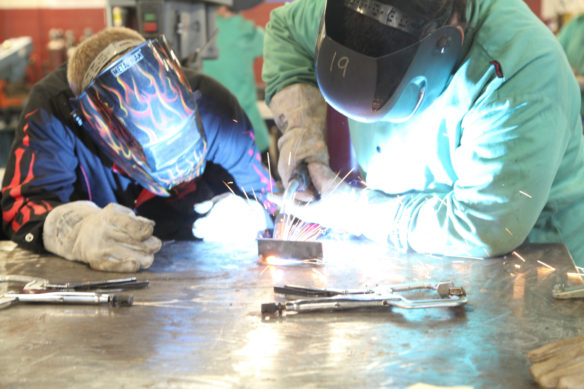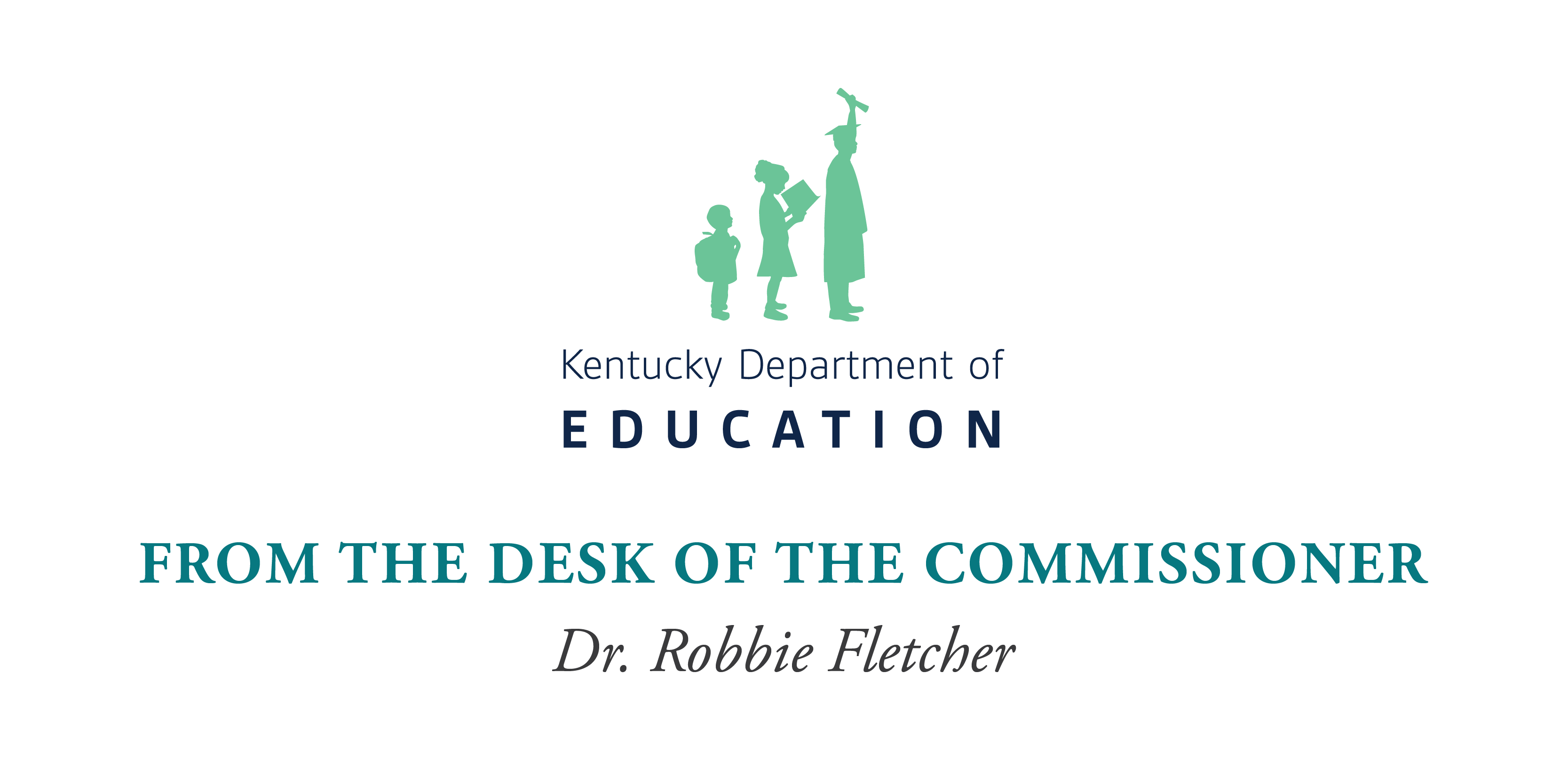
The Kentucky Career and Technical Education Task Force is ready to take a hard look at career and technical education in Kentucky in an attempt to address inequities in the system. Kentucky Education Commissioner Wayne Lewis said many pathways at local centers across the state, including some in the state’s most high-demand industries, are not being funded due to previous decisions made to protect already existing programs.
Photo by Megan Gross, Oct. 15, 2018
- The task force was created at the request of the Kentucky Board of Education and is expected to make recommendations prior to the 2020 biennial budget session.
- Inequities in funding and availability of programs in Kentucky’s two career and technical education systems will be a point of emphasis for the panel.
By Mike Marsee
mike.marsee@education.ky.gov
A legislative task force is ready to take a hard look at career and technical education in Kentucky in an attempt to address inequities in the system.
The Kentucky Career and Technical Education Task Force held the first in a series of meetings June 18 that could lead to structural and funding reforms in career and technical education (CTE).
The Kentucky Board of Education (KBE) asked the Kentucky General Assembly to create the task force, which is expected to make recommendations prior to the 2020 biennial budget session.
During a presentation to the KBE in February, Kentucky Education Commissioner Wayne Lewis said that existing statutes, regulations and funding levels pose a number of challenges for making funding determinations for locally operated area technical centers.
Additionally, Lewis acknowledged that decision made by the Kentucky Department of Education (KDE) during the past five to 10 years – intended to protect funding for already existing programs – has resulted in many pathways at local centers across the state not being funded. These unfunded pathways are commonly in Kentucky’s high-demand industries, such as advanced manufacturing, business and information technology, construction, healthcare, and transportation and logistics, which is leaving the state’s workforce underserved.
Sen. Mike Wilson (R-Bowling Green), who co-chairs the task force, said the group’s work is critical to addressing the skills gap in Kentucky.
“We have jobs that are out there that are available, that are high-skills, high-paying jobs that are not being filled,” Wilson said. “We keep recruiting companies to come into our state, but we’re not able to provide the workforce because our kids are not getting the skills that they need.”
Wilson said the panel will examine the funding mechanisms of state-operated area technology centers (ATCs) and locally operated career and technical centers, which are funded differently.
“We’ve had studies on this,” he said. “We’re going to look over those studies, and the recommendations of being one system, so there would be equity in funding.”
David Horseman, the associate commissioner in the Kentucky Department of Education’s Office of Career and Technical Education and Student Transition, said he’s glad those inequities are being addressed.
“We can’t necessarily serve all students the same way because we have a lot of gaps in availability of programs,” Horseman said. “There are some definite needs in the structure of the two systems and how to serve all kids equitably between the two systems.”
Horseman said KDE has been working with the Legislative Research Commission since last fall on research and data collection. He said KDE ultimately will need the legislature’s help to address statutes and regulations that present challenges to funding new programs and centers
Wilson told the task force that his goal is for the panel to make recommendations – including for legislation, if necessary – that will modernize the system.
He presented the group with a list of possible topics for future meetings:
- An overview of the CTE system, including progress made on recommendations from a 2014 report by the Southern Regional Education Board that came from a task force on which he served.
- An overview of the funding systems for ATCs and locally operated centers, with recommendations for revising those systems.
- An overview of the Kentucky Community and Technical College System’s role in CTE, including a look at its collaborations with ATCs and local centers.
- A presentation by representatives of ATCs and local centers on their programs.
- A report by the Education Professional Standards Board (EPSB) on the need for and feasibility of a vocational teacher ranking system that allows for occupational experience and training as alternatives to college training.
The task force, which next meets July 10, consists of four members each from the Senate and the House of Representatives and a representative from the EPSB.




Leave A Comment